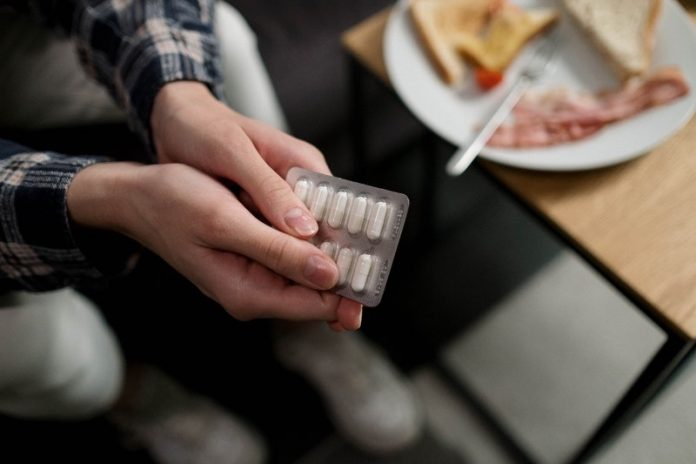
In a new study from the University of Florida, researchers found a pair of over-the-counter compounds that have been found in preliminary tests to inhibit the virus that causes COVID-19.
The combination includes diphenhydramine, an antihistamine used for allergy symptoms.
When paired with lactoferrin, a protein found in cow and human milk, the compounds were found to hinder the SARS-CoV-2 virus during tests in monkey cells and human lung cells.
The team already knew diphenhydramine was potentially effective against the SARS-CoV-2 virus. Like diphenhydramine, lactoferrin is available without a prescription.
In lab tests on human and monkey cells, the combination was particularly potent: Individually, the two compounds each inhibited SARS-CoV-2 virus replication by about 30%. Together, they reduced virus replication by 99%.
The findings are a first step in developing a formulation that could be used to accelerate COVID-19 recovery.
It also raises the prospect of further study through an academic-corporate partnership for human clinical trials focused on COVID-19 prevention.
Additional research into the compounds’ effectiveness for COVID-19 prevention is already underway in mouse models.
While the findings are encouraging, the team cautions against self-medicating with either diphenhydramine or lactoferrin as COVID-19 prevention or treatment.
The type of lactoferrin used in the research differs slightly from the type that is commonly available to consumers. Lactoferrin is commonly used as a supplement to treat stomach and intestinal ulcers, among other uses.
If you care about COVID, please see recent studies about scientists develop ‘warm vaccine’ to fight all COVID-19 variants and results showing that this drug can block multiple COVID-19 variants.
For more information about wellness, please see recent studies about why some fully vaccinated people will still get infected, and results showing that many Americans take immune-weakening drugs that may lower COVID vaccine response.
The study is published in the journal Pathogens. One author of the study is David A. Ostrov, Ph.D.
Copyright © 2021 Knowridge Science Report. All rights reserved.



